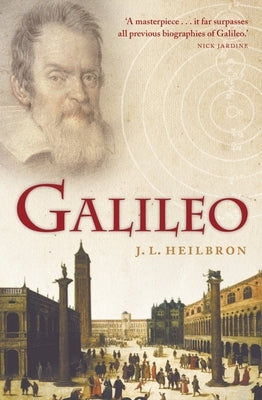Description
In 1610, Galileo published the Siderius nuncius, or Starry Messenger, a hurried little masterpiece in John Heilbron's words. Presenting to the world his remarkable observations using the recently invented telescope--the craters of the moon, the satellites of Jupiter--Galileo dramatically
challenged our idea of the perfection of the heavens and the centrality of the Earth in the universe. Indeed, the appearance of the little book is regarded as one of the great moments in the history of science. Here is a major new biography of Galileo, a fresh and much more rounded view of the great scientist than found in previous works. Unlike previous biographers, Heilbron shows us that Galileo was far more than a mathematician: he was deeply knowledgeable in the arts, an expert on the epic poet
Ariosto, a fine lutenist. More important, Heilbron notes that years of reading the poets and experimenting with literary forms were not mere sidebars--they enabled Galileo to write clearly and plausibly about the most implausible things. Indeed, Galileo changed the world not simply because he
revolutionized astronomy, but because he conveyed his discoveries so clearly and crisply that they could not be avoided or denied. If ever a discoverer was perfectly prepared to make and exploit his discovery, it was the dexterous humanist Galileo aiming his first telescope at the sky. In Galileo, John Heilbron captures not only the great scientist, but also the creative, artistic younger man who would ultimately become the champion of Copernicus, the bête-noire of the Jesuits, and the best-known of all martyrs to academic freedom.
Author: John L. Heilbron
Publisher: Oxford University Press, USA
Published: 09/07/2012
Pages: 528
Binding Type: Paperback
Weight: 1.80lbs
Size: 9.20h x 6.00w x 1.60d
ISBN13: 9780199655984
ISBN10: 0199655987
BISAC Categories:
- Biography & Autobiography | Science & Technology
- Science | History
- Science | Space Science | Astronomy
challenged our idea of the perfection of the heavens and the centrality of the Earth in the universe. Indeed, the appearance of the little book is regarded as one of the great moments in the history of science. Here is a major new biography of Galileo, a fresh and much more rounded view of the great scientist than found in previous works. Unlike previous biographers, Heilbron shows us that Galileo was far more than a mathematician: he was deeply knowledgeable in the arts, an expert on the epic poet
Ariosto, a fine lutenist. More important, Heilbron notes that years of reading the poets and experimenting with literary forms were not mere sidebars--they enabled Galileo to write clearly and plausibly about the most implausible things. Indeed, Galileo changed the world not simply because he
revolutionized astronomy, but because he conveyed his discoveries so clearly and crisply that they could not be avoided or denied. If ever a discoverer was perfectly prepared to make and exploit his discovery, it was the dexterous humanist Galileo aiming his first telescope at the sky. In Galileo, John Heilbron captures not only the great scientist, but also the creative, artistic younger man who would ultimately become the champion of Copernicus, the bête-noire of the Jesuits, and the best-known of all martyrs to academic freedom.
Author: John L. Heilbron
Publisher: Oxford University Press, USA
Published: 09/07/2012
Pages: 528
Binding Type: Paperback
Weight: 1.80lbs
Size: 9.20h x 6.00w x 1.60d
ISBN13: 9780199655984
ISBN10: 0199655987
BISAC Categories:
- Biography & Autobiography | Science & Technology
- Science | History
- Science | Space Science | Astronomy
About the Author
John Heilbron is Professor of History and Vice Chancellor Emeritus of the University of California at Berkeley. One of the most distinguished scholars on the Scientific Revolution, he is the author of The Sun in the Church (a New York Times Notable Book) and The Oxford Companion to the History of
Modern Science.

